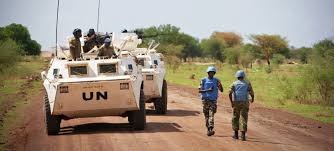A United Nations panel investigating sanctions violations in Sudan is examining how mortar rounds originally exported from Bulgaria to the United Arab Emirates (UAE) ended up in the hands of the Rapid Support Forces (RSF), a powerful Sudanese paramilitary group accused of war crimes.
According to a confidential letter reviewed by Reuters, the 81mm mortar rounds seized by pro-government militia in North Darfur in November bore serial numbers matching those Bulgaria had exported to the UAE in 2019. The serial numbers were visible in images and videos circulated online following the seizure.
In a December 19 letter to the UN, Bulgaria confirmed the 2019 shipment to the UAE and stated that it had not authorized any re-export of the munitions to Sudan or elsewhere. “The Bulgarian competent authority has not issued an export license for defense-related products to Sudan,” its foreign ministry told Reuters.

The UAE has repeatedly denied accusations of arming the RSF, which is fighting Sudan’s national army in a devastating civil conflict that has killed tens of thousands and displaced millions. Last year, the U.S. government declared that RSF fighters and allied militias had committed acts of genocide during the war that escalated in May 2023.
When asked about the mortars, UAE officials referred to the latest annual report from the UN panel of experts, which reportedly contains no direct evidence that the UAE has supplied arms to the RSF. Though the report—shared with the UN Security Council but not yet made public—does document the November arms seizure, it does not delve into the origin of the seized weapons.
Still, correspondence between the UN panel and Emirati officials, reviewed by Reuters, reveals the investigation is ongoing. In one letter dated November 26, the panel requested cargo manifests for 15 flights from UAE airports to Amdjarass and N’Djamena in Chad—destinations close to Sudan’s western border. Emirati authorities declined to share full details, citing time constraints, but did provide partial manifests for three flights. These included about 22 metric tons of cargo consisting of food, medicine, and civilian vehicles—roughly half the typical payload of the IL-76 cargo planes used.
The UAE did not respond to Reuters’ queries regarding the remaining flights.
The RSF has gained control over much of Darfur amid a brutal campaign of violence, and the question of its arms suppliers has become central to accountability efforts. Last month, Sudan brought a case against the UAE at the International Court of Justice, accusing it of violating the Genocide Convention by arming the RSF. The court began hearings on the case last week.








